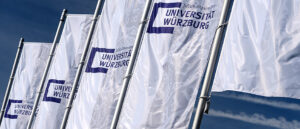
A recent study led by the University of Oxford has uncovered a significant finding in quantum timekeeping: the energy required to measure a quantum clock exceeds that of operating it. This research, published in Physical Review Letters, highlights an unexpected source of entropy linked to the measurement process itself, suggesting important implications for the future of quantum technology.
The research team, composed of physicists from Oxford and other institutions, conducted a series of experiments to evaluate the energy dynamics of quantum clocks. Their findings indicate that while the functionality of quantum clocks is efficient, the act of reading or measuring time introduces a substantial energy cost. The study reveals that the measurement process can lead to a greater energy expenditure than the operation of the clock itself.
Understanding the Energy Dynamics
This investigation sheds light on the intricate relationship between measurement and energy in quantum systems. The team discovered that entropy increases during the measurement phase, which directly correlates with energy consumption. This phenomenon poses a challenge for optimizing quantum devices, as engineers must now consider the energy costs associated with measurement alongside the operational efficiency of the devices.
The implications of this research are far-reaching, affecting the design and implementation of future quantum technologies. As the field of quantum computing and timekeeping evolves, understanding these energy dynamics will be crucial in developing more efficient systems.
Researchers emphasize the importance of addressing these energy costs in order to advance quantum technology. The study serves as a call to action for scientists and engineers to rethink the design of quantum devices, ensuring that they can operate not only effectively but also sustainably.
Potential Applications and Future Research
The findings from this study may lead to significant advancements in various fields, including quantum computing, secure communications, and precision measurement. As quantum technologies continue to gain momentum, understanding the energy implications of measurement will be vital for their practical applications.
Future research will likely focus on developing methods to minimize the energy costs associated with measurement in quantum systems. By exploring innovative approaches, researchers hope to enhance the performance and sustainability of quantum technologies, making them more viable for widespread use.
In conclusion, the study from the University of Oxford opens new avenues for understanding the complexities of quantum timekeeping. As the field progresses, addressing the energy costs of measurement will be essential in shaping the future of quantum technology.







